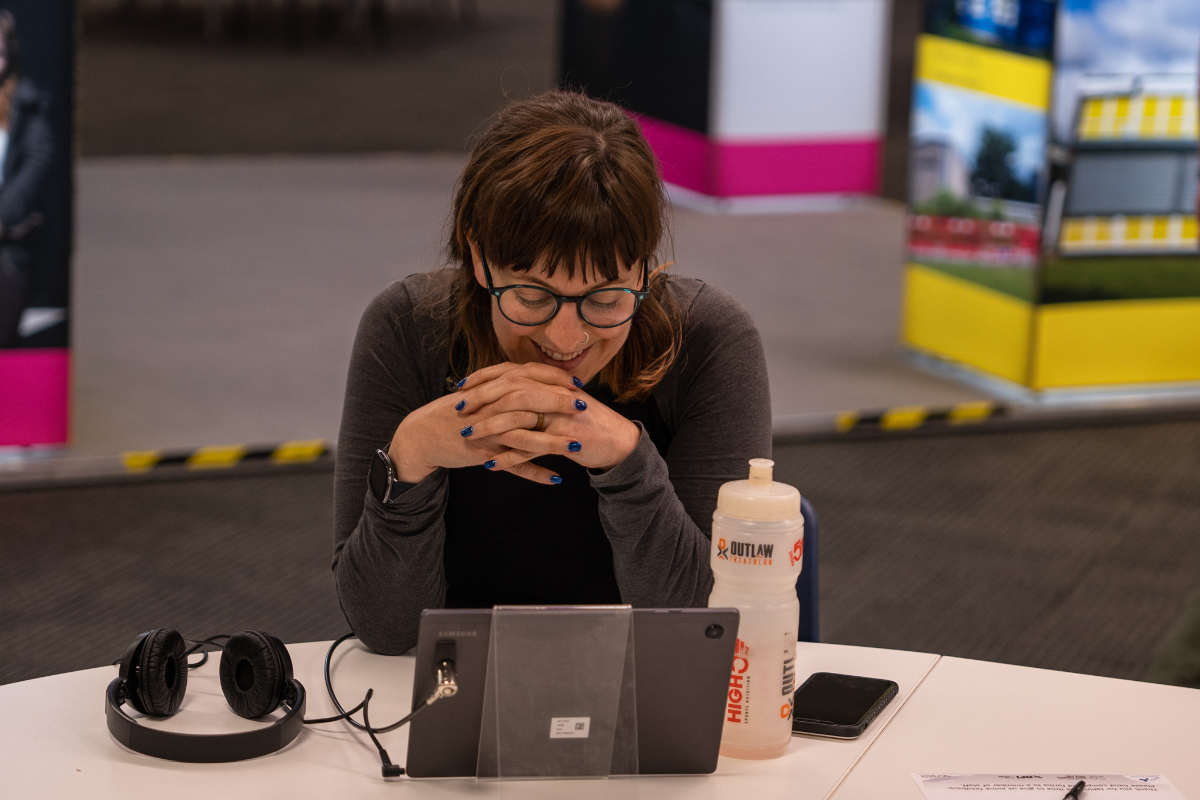
Digital Spaces
Photo: Hayley Salter
Peer-to-peer mentoring for digital
Many organisations are feeling overwhelmed at the huge range of available digital opportunties. Rob Lindsay explores how mentoring can provide support to those in need of building digital confidence.
The Space has always tried to respond to the needs of the sector, listening to the questions that are brought to us and finding ways to support in the areas that people are seeking help. We’ve done this through a number of programmes, the most well-known of which is our commissioning strand. As part of this, we commission digital content from different organisations and support them to produce and distribute those commissions to audiences.
But we felt there was also a need for broader strategic digital advice and guidance alongside this individual project focus. This was more about developing the organisation not just in terms of technical insight but also in terms of confidence. The mentoring programme, now in its fourth year, grew out of the conversations we’d been having, and The Space now deliversprogrammes in England, Wales and Scotland.
Being better at digital
The mentoring we offer is bespoke to each organisation. It might be about a specific piece of work, around a broader overall strategy or helping people who feel stuck. Many people want to “simply be doing better at digital”, however they define that.
Just as we all define arts and audiences differently, so people have different approaches to digital and what constitutes better. We try to be as non-prescriptive as possible to help people explore whichever aspect they want to focus on.
The questions organisations ask vary greatly year on year. Initially, pre-lockdown, we had a lot of questions about innovative uses of technology or emerging trends. Over lockdown, understandably, questions came from people feeling under-confident about their digital strategies and their understanding of online audiences.
We saw a shift away from creating new work towards a focus on a deeper understanding of audiences. As we’ve emerged from lockdown there’s been a cautious return to experimenting with combining the two, developing new ways of reaching audiences using innovative technology.
Many are feeling overwhelmed
Trends such as virtual reality (VR), podcasting and 360 make regular appearances, but the one consistent reason for people coming to us over the years of the mentoring programme has been that they feel overwhelmed.
With the huge range of digital opportunities available, it’s difficult for people to decide where to invest their limited time, energy and headspace. Often our role is to help prioritise.
After initial conversations, we consider an organisation’s specific needs to pair it with an appropriate mentor. We have a rich roster of paid associates and freelancers and we ensure we align mentors with work that interests them; our aim is to expand horizons for everyone. We think it’s important not to gatekeep relationships and it’s wonderful to see the work grow and continue between mentors and mentees beyond the end of each programme.
Using digital strategically
We don’t train in software, or hardware nor do we offer IT support. There are already many companies who do this brilliantly.
What we do aim to do is develop people’s strategic use of digital: for example, how they decide on audiences they want to reach, what materials to create to reach them, the deployment marketing and distribution. We run webinars that cover these broader topics, allowing the mentoring to be more specific, unearthing what is unique about an organisation to boost insight and confidence.
For example, we’ve recently worked with a community theatre group in creating their first digital strategy document. In the process, we helped them articulate to their board what just how much they had achieved in the last two years.
We’ve worked with a national arts space moving Covid-responsive digital events towards a forward-looking hybrid model. We’ve helped artists and overstretched one-person teams to simplify their digital wish lists, enabling them to recognise which platforms genuinely help them reach audiences and which are simply time sinks.
And we’ve helped education departments in legacy organisations to develop their online offerings into adaptable, sustainable formats so that they don’t start from a blank page every time they embark on a new project.
Peer-to-peer sessions offer time for reflection
Each programme runs over a six-month period, with each organisation and mentor free to utilise the time as they choose, with flexibility to ensure everyone gets what they need. At the start and end of the project, we convene group sessions, which have been crucial.
Since 2020, the sector has been through a remarkable period of enforced experimentation, with steep learning curves. Coming together – openly and candidly our peer-to-peer sessions offer tremendous opportunity for insight and new learning.
We’ve grown from 12 organisations in the first year to a total of over 100, varying enormously in size, scope and legacy – from national organisations with hundreds of employees to small teams of freelancers.
While organisations face unique challenges, the common phrases that repeatedly appear in applications are ‘lack of confidence’ and ‘feeling overwhelmed’. We’re glad to be able to provide the space, time and mentorship to help them grow.
Rob Lindsay is Head of Programmes at The Space.
![]() www.thespace.org
www.thespace.org
![]() @thespacearts
@thespacearts
This article, sponsored and contributed by The Space, is part of a series spotlighting new ways of creating and distributing digital content, and exploring the wealth of new technologies and platforms coming online.
Join the Discussion
You must be logged in to post a comment.